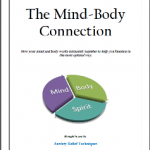If a diagnosis is made for a patient suffering from aviophobia or fear of flying, treatments will often start depending on the severity of the phobia. The most common treatment options available in overcoming fear of flying include drug therapy, natural remedies, Cognitive Behavioral Therapy (CBT), relaxation techniques and airline-affiliated programs. Each of these offer different concepts and processes so it’s up to the person which one could be suitable to his or her needs.
1. Drug Therapy
This is the mildest form of treatment available for people who are starting in overcoming their flying fear. Once diagnosis is made by the psychologist or psychiatrist, the most common drug prescription that they give include benzodiazepines and other relaxant drugs which are proven to control the symptoms of the phobia for a certain period of time.
Although some can be bought over the counter, always remember to check with your health provider which drugs may help you overcome that fear while in flight. Their approval and prescription is very important because these will ensure that the problem will not get more complicated.
2. Herbal and Natural Remedies
If you want to go the natural way, there are certain natural remedies that can be made or taken at home to help you control anxiety attacks during flights. These herbs include St John’s Wort, Scullcap, Passiflora incarnate, and Valerian are recommended because these are believed to help calm the person’s nerves while aboard. Because these contain properties that help people to relax, many are trying this treatment option. But since herbal or natural remedies don’t necessarily have clinical approval, it is best to test first the effects of these herbs before you finally go aboard.
3. Cognitive Behavioral Therapy or CBT
Experts say that one of the most effective methods for helping people overcoming their fear of flying is the process called “desensitization.” This is an educated approach to overcoming fear in flying because the process involves making the person face the fear “face to face”. How? The moderators introduce the patient to his or her fear and then, slowly, the idea of flying will be re-introduced. Other components of the method also include conversations on it, field visits such as the airport, and soon, you will be accompanied to take a real flight. During the sessions, the patient will be taught various relaxation methods as well as techniques so they can cope with the phobia and eventually eliminate it form their system.
4. Various Relaxation Techniques
Since anxiety is the main culprit for fear of flying, people who are experiencing this are advised to various techniques that would help them relax such as meditation and deep breathing as well as muscle relaxation. People who are afraid to fly are advised to practice these techniques at home so once they have mastered it, they can try using these relaxation methods when they finally able to take a flight. Learning these techniques are important because it will help the person reduce his or her anxiety, relieve the tension brought by the fear, and enable that person to take off his or her mind into untoward things and accidents.
Affiliate Disclosure
My website contains affiliate links, which means if you purchase any products mentioned in my articles, I may receive a commission. If you do, thank you!







Natural Remedies
Placebo effect is all you get. If you believe, it can help.
Medication
Though medication can reduce anxiety on the ground, it sharply increases panic and anxiety when flying. According to research at the Stanford University School of Medicine, alprazolam (Xanax) was associated with a ten-fold increase in panic attacks during flight, and increased heart rate or other stress indicators.
Breathing-Relaxation Techniques
Research repeatedly shows that relaxation techniques, the basis of most other programs, provide little or no benefit. A research study at Georgia State University states, “breathing relaxation, perhaps the most popular anxiety-management skill, was not related to reduced flying anxiety”.
Cognitive Behavioral Therapy
SOAR was the first fear of flying program to use CBT. We found that clients whose anxiety develops slowly benefited from some CBT techniques, such as responding to the first awareness of fear by saying “fear does not mean you are in danger”. Because it depends on statements, CBT cannot keep up with anxiety or panic that develops quickly.
Though none of those therapies are adequate, effective help is available.